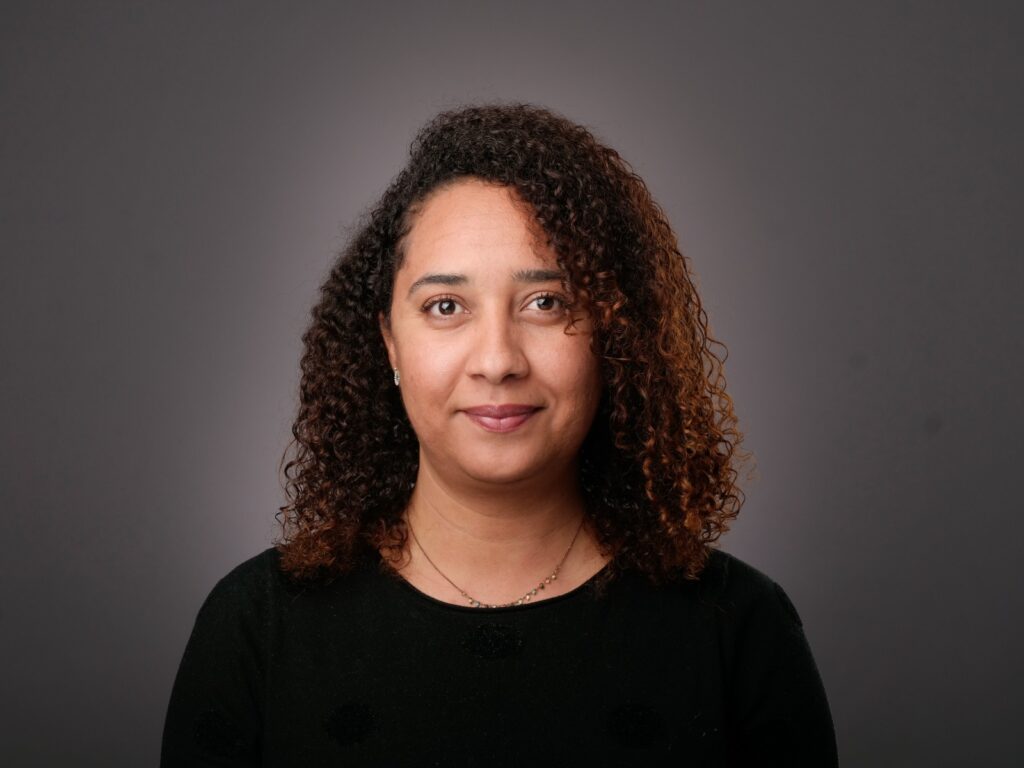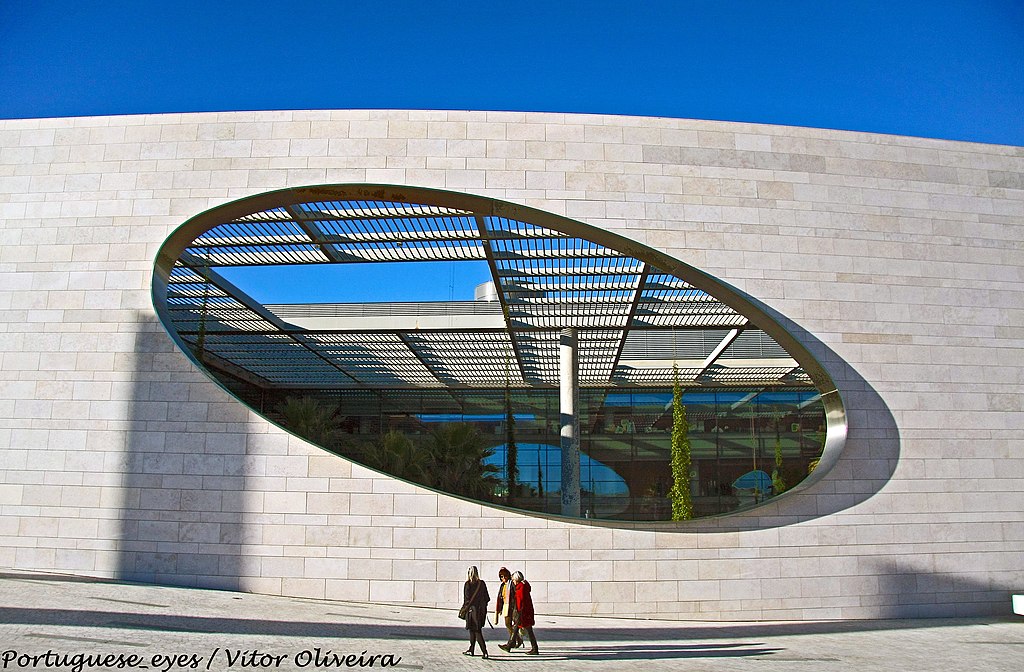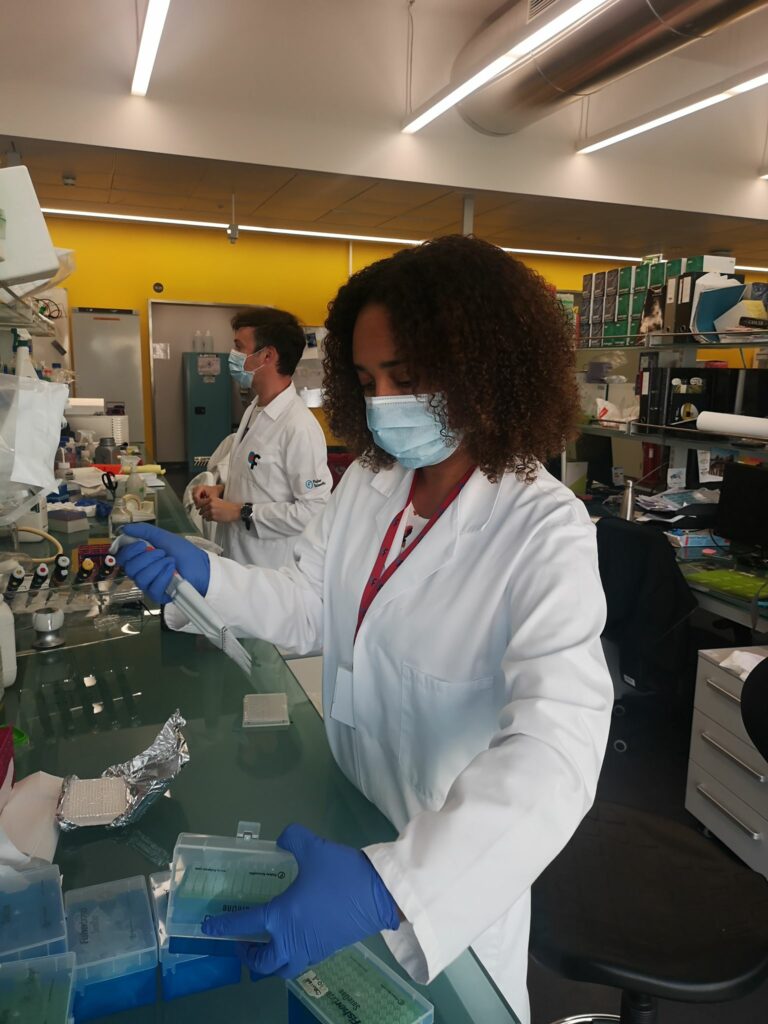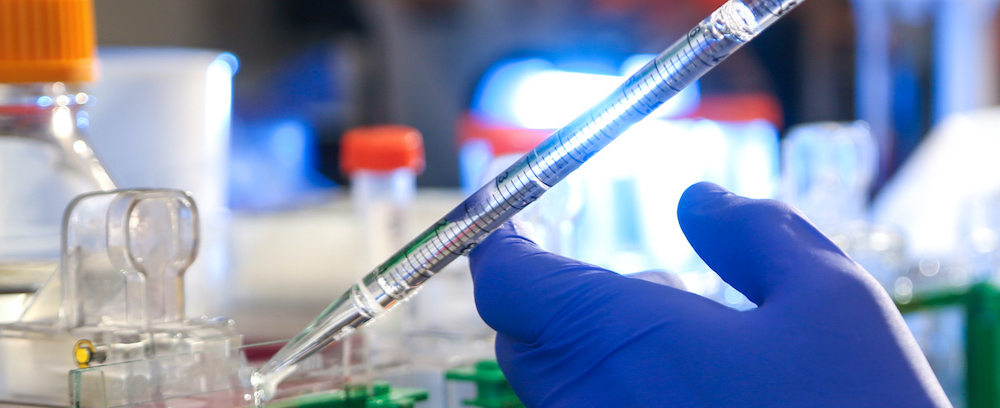Denise Azevedo Camacho, a Cape Verdean pharmacist and cancer researcher, moved to Portugal in 2017 to start her PhD journey. She applied for a PhD fellowship offered by the Gulbenkian Institute of Science as she was living in the Cape Verde islands in the Atlantic Ocean off the coast of Africa. It was a highly competitive scheme and only very few fellows were awarded the scholarship out of more than a 100 applicants.
Her journey in Lisbon is quite interesting. Usually, those who have had such a positive experience in Portugal, as Denise, decide to stay indefinitely. Even though Denise feels that she has grown immensely through her Portuguese experience on both the personal and the scientific levels, she is set on returning to Cape Verde.

On the one hand, she is deeply grateful for the research resources and rich human encounters she has had. On the other hand – and to my surprise – she tells me that she plans to return home, despite the many well-paid opportunities she could have anywhere in Europe.
It is particularly because those resources, which she feels she was lucky to have had, are not fully available in the Cape Verde, that she wants to go back home and contribute to scientific community there. She would like to make the resources and opportunities which were made available for her in Europe also available for other young scientists back home.
Denise Azevedo Camacho chose Fundação Champalimaud (Champalimaud Foundation) to be her host institution for its world-wide reputation in cancer research.
And about that, I asked her a few questions:
Could you tell us a little bit about your cancer research project? And what is it like working at Champalimaud?
I work with a mechanism called cell competition. Cells in our body are constantly interacting and exchanging information. In certain situations, cells may compare their relative cell fitness and activate mechanisms that secure the elimination of unhealthy cells. This endogenous process is named cell competition. In a disease context, cancer cells compete with normal surrounding cells leading to their elimination.
For cancer to develop, it needs to kill the surrounding cells in order to have more space and nutrient to grow.
My project focuses on stopping this communication between cancer cells and normal cells mediated by a protein called Flower. One way to study this is to identify the proteins that bind to Flower. By knowing the Flower integrators, it will be possible to better understand its function and the role of these ligands in a scenario of cell competition.
As the old saying goes “Tell me who you hang out with and I’ll tell you who you are”.
By identifying and studying protein that interact with Flower, we can stop this communication. When you stop the communication between cancer cells and normal cells, standard cancer treatments may have a better outcome, or we can also open the way to the development of new drug strategies to treat cancer by targeting this interaction.

Champalimaud provides outstanding facilities and resources for both individual and team projects. For example, the ground floor of the institution is a hospital, and the first and second floors are dedicated for cancer and neuroscience research. To do research in molecular biology, you need special rooms to experiment with viruses as well as with other cells.
Champalimaud provides different rooms for those purposes.
There are also platforms (small companies) which provide the right assistance for scientists which allows research to be carried out in a timely manner. Those platforms facilitate the execution of experiments one needs to carry out. There are also weekly lab meetings where each individual project is discussed as well as regular meetings with principal investigators. We, as researchers, receive constant feedback which contributes to the quality of our research.
From what you told me before, it seems that you also have a nice work/social life balance at Champalimaud.
That is true. We have a weekly “Happy Hour” where all groups working at the institute meet up over free beer and exchange ideas in a chill environment. This social aspect of our work contributes to a vibrant, friendly environment and improves internal collaborations among the groups. There is also a free gym available to all researchers inside the institute which creates another space for mental and social well-being.
What are your next steps that you have now submitted your PhD thesis?
As for next steps, I am currently waiting for my PhD defense. I am also going to return to the Cape Verde. It is true that if I stay in Europe, I might have better opportunities. However, this doesn’t mean I don’t also have good opportunities in the Cape Verde. I feel the need to help my country. I need to contribute to its scientific development.
This has always been my ultimate goal, to go back home and make a difference.
I had amazing teachers at high school in the Cape Verde. Imagine if those teachers never stayed in the Cape Verde! I want to give similar inspiration to young people back home. It doesn’t matter where you were born or if you are rich or poor, you just need to keep trying. You also need to meet the right people who guide you along the way. If my country lacks certain resources, then maybe I can be the person changing that.

What would you call are the best and the most challenging things abour your scientific journey in Portugal?
This is a difficult question. But I can tell what was the most surprising thing about my journey instead: I didn’t expect to use that much English in Portugal.
As you know, Cape Verdeans speak Portuguese as it is the official language, but in our daily life we speak Creole. However, the predominant language of the institute is English due to how international it is.
In my team, many people weren’t Portuguese speakers when I arrived. I didn’t expect to speak more English than Portuguese in Lisbon nor did I imagine to speak as little Creole as I do now.
The best thing about the journey is the possibility to meet people from different backgrounds. Most of these people I wouldn’t have had the chance to meet and learn about their cultures and research if I hadn’t come to Lisbon for my PhD. In some ways, I am a different person from who I was when I first arrived here due to all those rich encounters.
I also participated in activities which were only possible for me because of my research here in Lisbon, such as working with science for kids and promoting the work women scientists do in Portugal. This was extra work which I was happy to do as it added an interactive, social dimension to my research journey.
The positive outcome wasn’t only my research, but also who I became as a person through all those experiences.
––––––––––
Read more about Portugal here in Dispatches’ archives.
Sarah Nagaty has a PhD in cultural studies, She’s lived in Portugal for six years.
As a student of cultural studies, Sarah is drawn to what connects people from different backgrounds to new cultures and places, how they relate to their new surroundings and what kind of activities they could engage with in their new hometowns.















